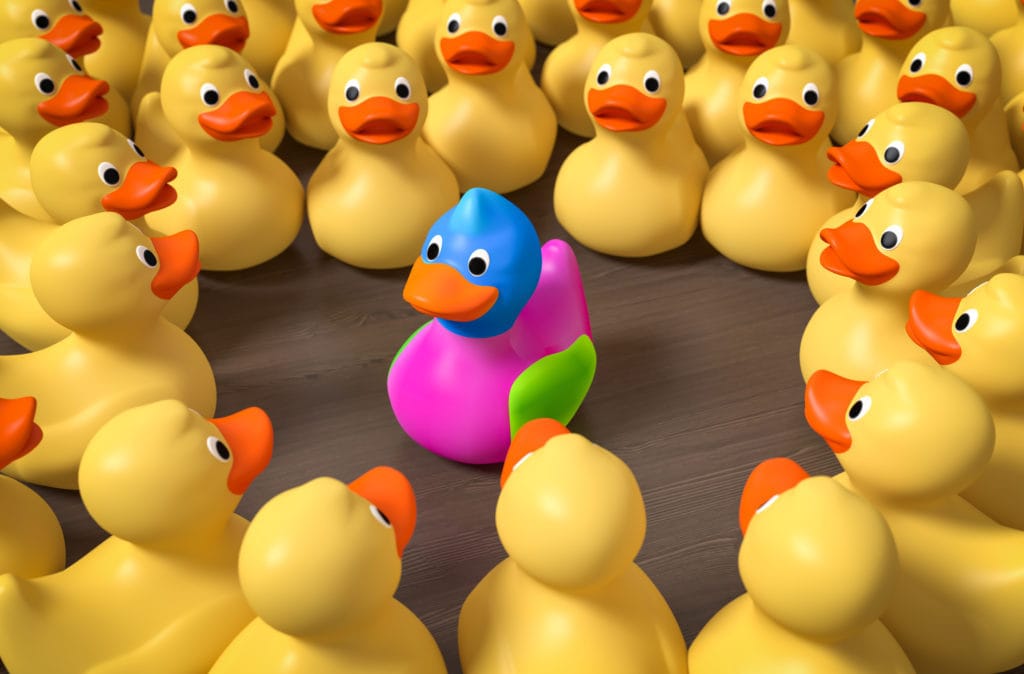In our human experience, differentiation stands out as a vital thread that contributes to the rich pattern of our individual and collective lives. This concept, while often explored within the realm of developmental psychology and interpersonal relationships, also plays a major role in encouraging healthy self-esteem. In this article, I will delve into the intricacies of differentiation and how understanding and embracing our unique identities can lead to a more fulfilling and self-assured life.
What is Self-Differentiation?
Differentiation is the process through which individuals come to see themselves as separate entities from others. It involves recognizing and accepting your own thoughts, feelings, and desires as distinct from those around you. This doesn’t mean building walls between yourself and others but rather developing a strong sense of self while remaining connected to those around you.
In the context of personal growth, differentiation means identifying your unique qualities, beliefs, and values, and understanding how they set you apart from others. It’s about finding your own voice and path in life, separate from societal expectations or familial pressures.
Differentiation and Self-Esteem: Navigating the Path to Personal Empowerment
Differentiation refers to the process of defining oneself as an individual, separate from others, particularly in the context of family and close relationships. Self-esteem, on the other hand, is our overall subjective emotional evaluation of our own worth. Although distinct, these concepts are deeply intertwined, influencing and shaping our paths in profound ways. Let’s explore how differentiation and self-esteem intersect and the role they play in our personal development.
The Essence of Differentiation
Differentiation is a term that originated in family systems theory but has broad implications for personal growth. It describes the ability to maintain your sense of self while in close proximity to others, particularly those with differing views and emotions. A well-differentiated individual can balance two critical life forces: the drive for individuality and the drive for togetherness. This balance is not achieved without effort; it requires emotional regulation, clear communication, and the ability to maintain personal values while remaining connected to others.
In the context of self-growth, differentiation means recognizing and accepting your unique qualities, values, and beliefs. It’s about being able to say, “This is who I am”, even in the face of opposition or pressure to conform. Differentiation allows us to pursue our own goals and interests, make decisions based on our internal compass, and express our true selves in relationships.
Self-Esteem: The Inner Mirror
Self-esteem is the mirror through which we view ourselves, reflecting our perceived value and competence. Healthy self-esteem is not about ego or arrogance; it’s about self-respect and self-appreciation. It involves acknowledging your strengths and weaknesses and still accepting yourself unconditionally. High self-esteem is linked to resilience, motivation, and mental well-being, while low self-esteem can lead to anxiety, depression, and relationship problems.
The relationship between self-esteem and differentiation is cyclical. Differentiation strengthens self-esteem by promoting authenticity and personal integrity. In turn, strong self-esteem facilitates further differentiation by fostering the confidence needed to stand apart from the group and assert one’s individuality.
Nurturing Differentiation to Boost Self-Esteem
Developing a well-differentiated self is a key step in enhancing self-esteem. Here are some strategies to foster differentiation:
- Self-reflection: Spend time alone to understand your thoughts, feelings, and desires. Identify your values and beliefs, and reflect on how they align with your actions and decisions.
- Assertiveness: Practice expressing your thoughts, feelings, and needs directly and respectfully. Assertiveness is a critical skill in maintaining healthy boundaries and respecting your own and others’ rights.
- Pursue personal interests: Engage in activities that reflect your individual interests and passions. This reinforces your sense of self and validates your unique identity.
- Seek supportive relationships: Surround yourself with people who respect and encourage your individuality. Healthy relationships should empower you to be your true self without fear of judgment or rejection.
- Embrace change: Be open to growth and change. Differentiation is an ongoing process, and life experiences can lead to new insights and perspectives.
The Road Ahead
The journey toward greater differentiation and self-esteem is both challenging and rewarding. It requires introspection, courage, and a commitment to personal growth. By embracing your unique identity and valuing your self-worth, you pave the way for a fulfilling and authentic life.
Remember, differentiation and self-esteem are not destinations but paths we walk throughout our lives. They are essential components of emotional health and interpersonal well-being. As you navigate the complexities of relationships and self-perception, keep these concepts close to heart, guiding your steps toward personal empowerment and a deeper sense of fulfillment.
Practicing Differentiation in Today’s World
In a world where social media and societal pressures often blur the lines between individuality and conformity, is more crucial than ever. Differentiation, the process of defining oneself as a unique individual separate from the crowd, can significantly impact personal and professional life. Here are real-life examples illustrating how practicing differentiation can help individuals stand out, embrace their uniqueness, and resist the urge to constantly compare themselves to others.
Professional Life: The Creative Entrepreneur
Consider the story of Maya, a graphic designer who decided to launch her own branding agency. In an industry saturated with competition, Maya knew that to succeed, she needed to differentiate her services. She embraced her unique approach to design, which combined traditional art with digital media, a reflection of her personal interests and skills. Instead of trying to compete on price or speed, she focused on creating bespoke branding packages that told a story, resonating with niche, artisanal businesses.
Maya’s commitment to her distinct style and client approach not only set her apart from competitors but also attracted a loyal customer base. By differentiating herself, she built a brand that was authentic to who she was, thereby boosting her self-esteem and establishing a strong position in the market.
Personal Life: The Non-conformist Hobbyist
Alex is another example. By day, he is a software engineer, but his real passion lies in urban gardening, a hobby not typically associated with his peers. Initially, Alex felt hesitant to share his interest with his tech-savvy friends, fearing ridicule or disinterest. However, once he began to embrace his hobby openly, sharing tips and produce from his garden, he was surprised to find not only acceptance but admiration from his colleagues.
Alex’s willingness to stand out and own his unique hobby led to newfound respect among his peers and even inspired others to explore their own unconventional interests. This boosted his self-esteem, as he no longer felt the need to conform to the stereotypical interests expected of his profession.
Social Life: The Advocate for Change
Then there’s Priya, who has always been passionate about social justice issues. While many in her social circle preferred to stay away from controversial topics, Priya felt compelled to speak out and advocate for change. She used her platform on social media to share information, resources, and personal stories related to causes she cared about.
Though initially, she faced backlash and lost some followers, Priya also connected with like-minded individuals and organizations. Her dedication to her beliefs, despite the risk of alienation, helped her create a strong, supportive community around her. This not only reinforced her self-esteem but also underscored the importance of standing firm in one’s beliefs, even if they differ from the mainstream.
Academic Life: The Non-traditional Student
Lastly, consider the story of Michael, a non-traditional student who returned to college after a decade in the workforce. Amidst a sea of younger classmates, Michael felt out of place and struggled with imposter syndrome. However, he soon realized that his real-world experience provided a different perspective that enriched class discussions and projects.
By embracing his unique path and contributions, Michael differentiated himself as a valuable member of the academic community. His confidence grew as he began to see his age and experience not as liabilities but as assets that enhanced his and his classmates’ educational experience.
These real-life examples demonstrate the power of differentiation in modern life. By embracing their unique qualities, interests, and beliefs, individuals can stand out in a positive way, fostering a sense of belonging and self-esteem that is not dependent on external validation. The practice of differentiation encourages us to stop comparing ourselves to others and start embracing and sharing our true selves with the world.






